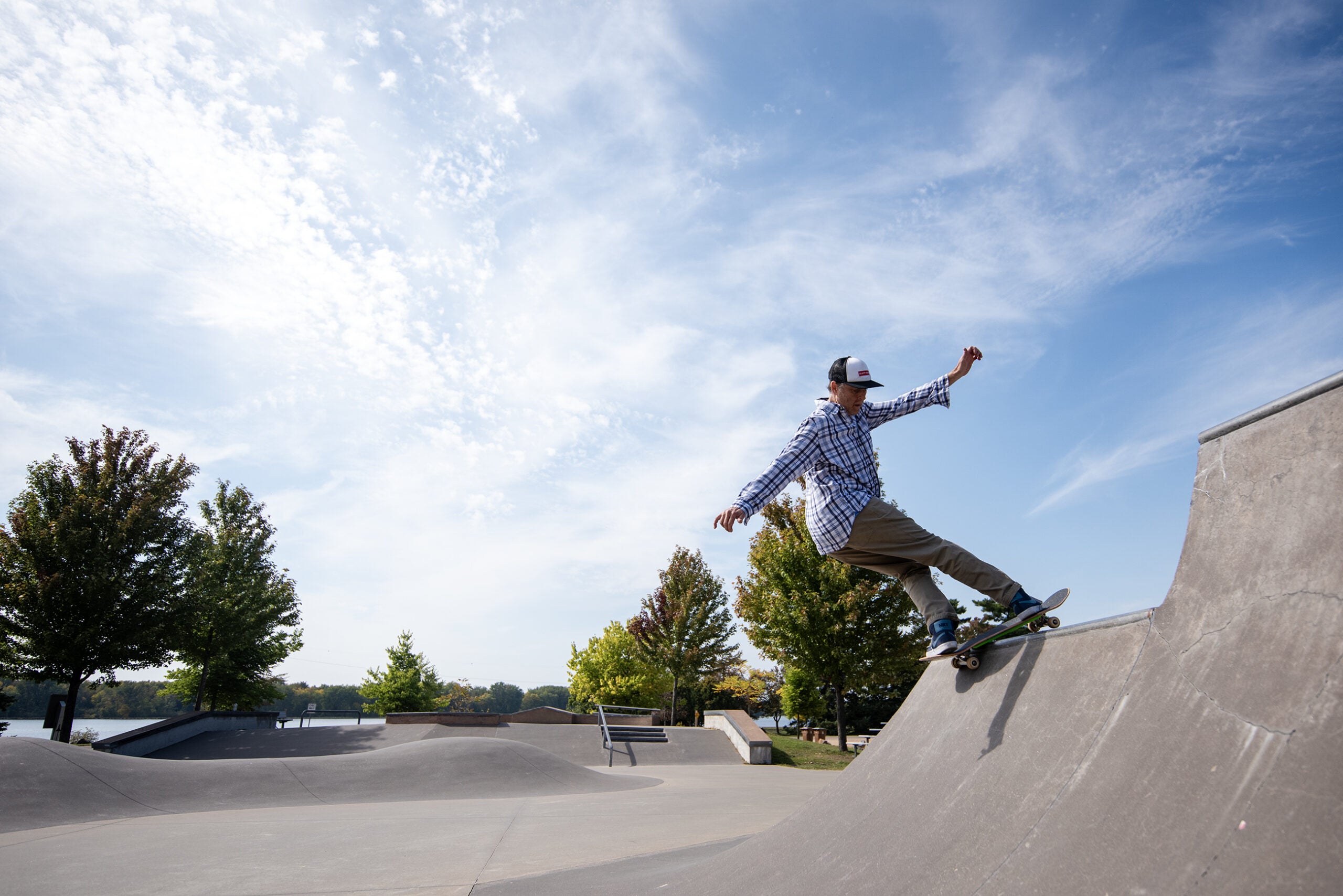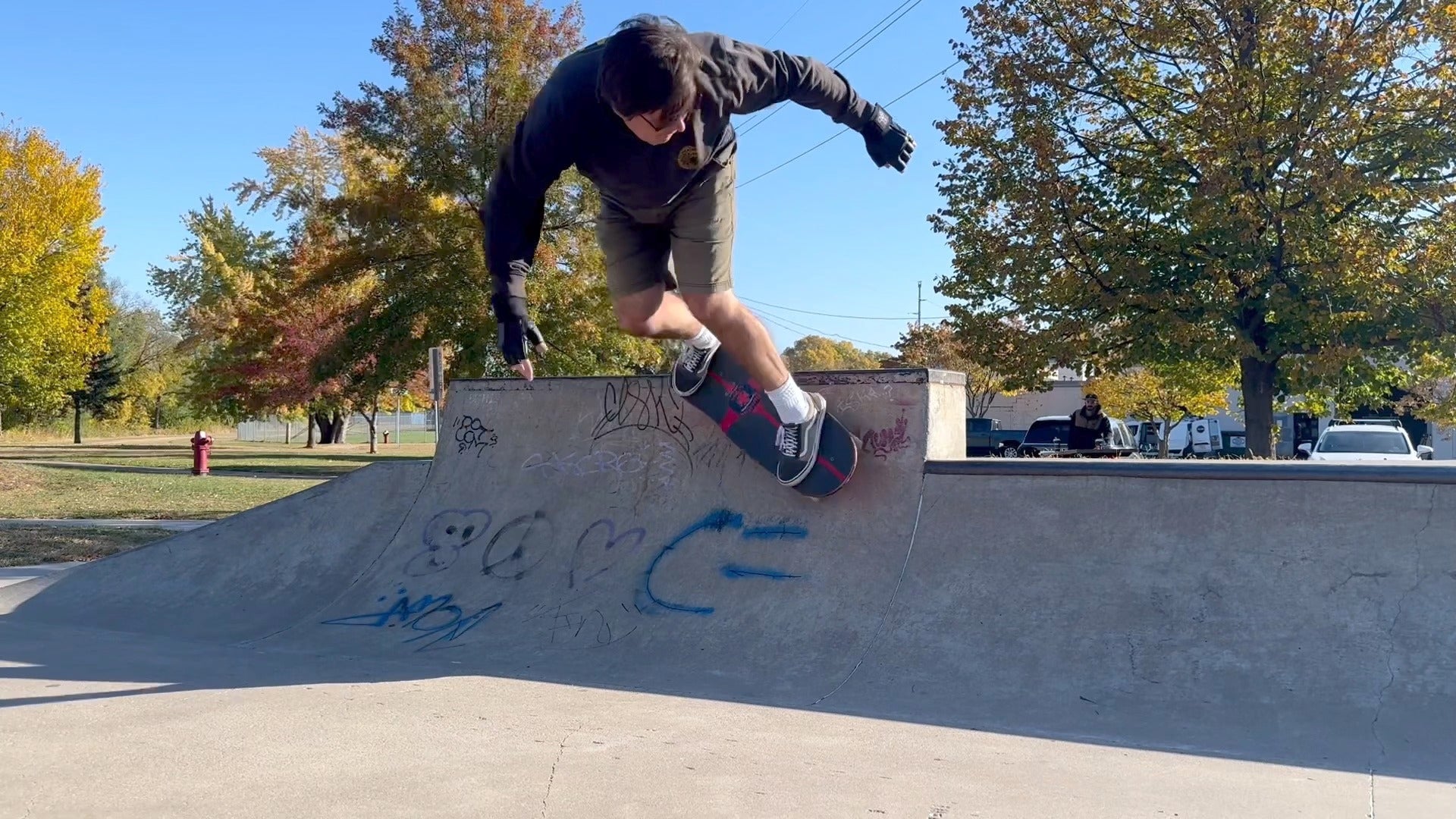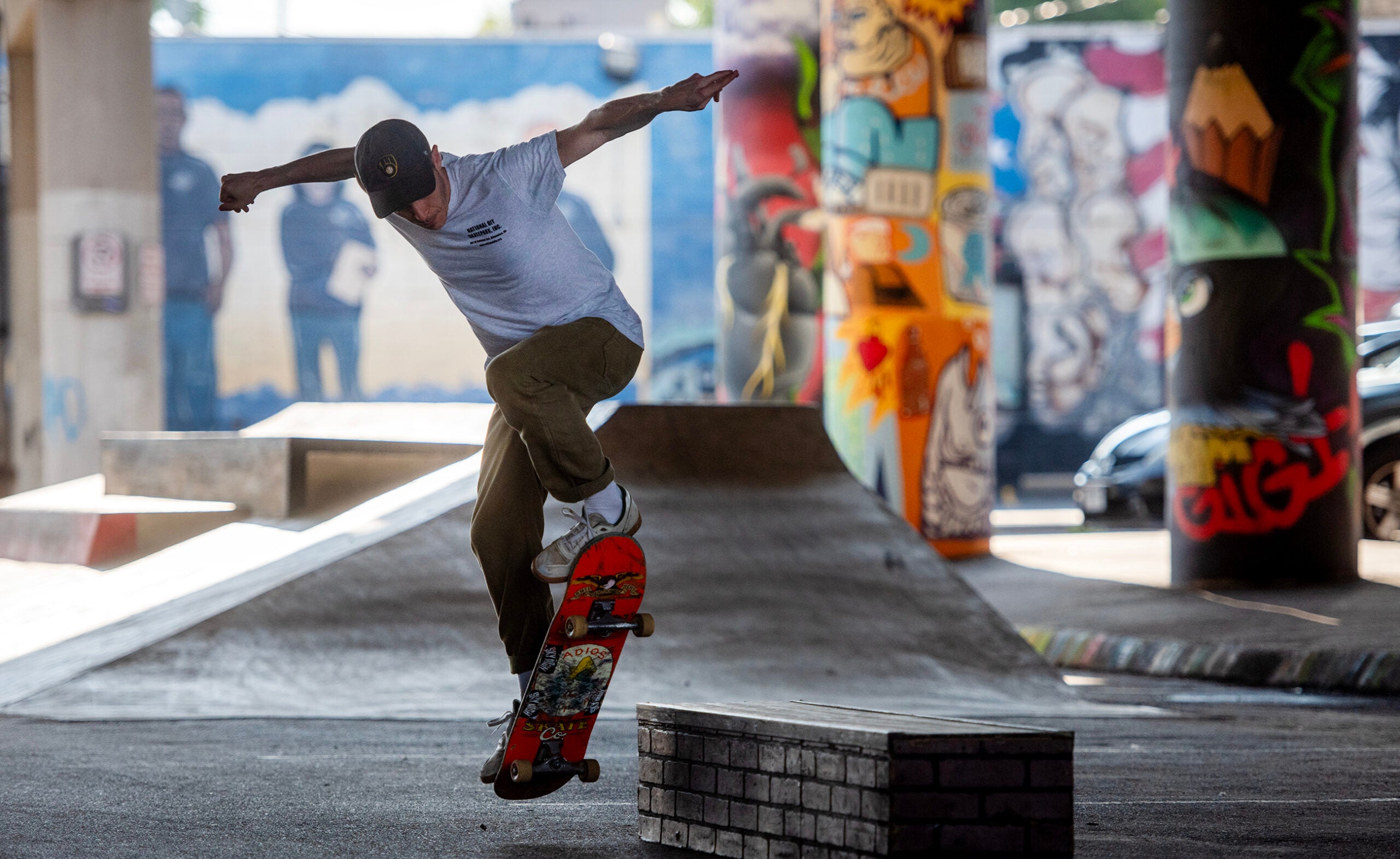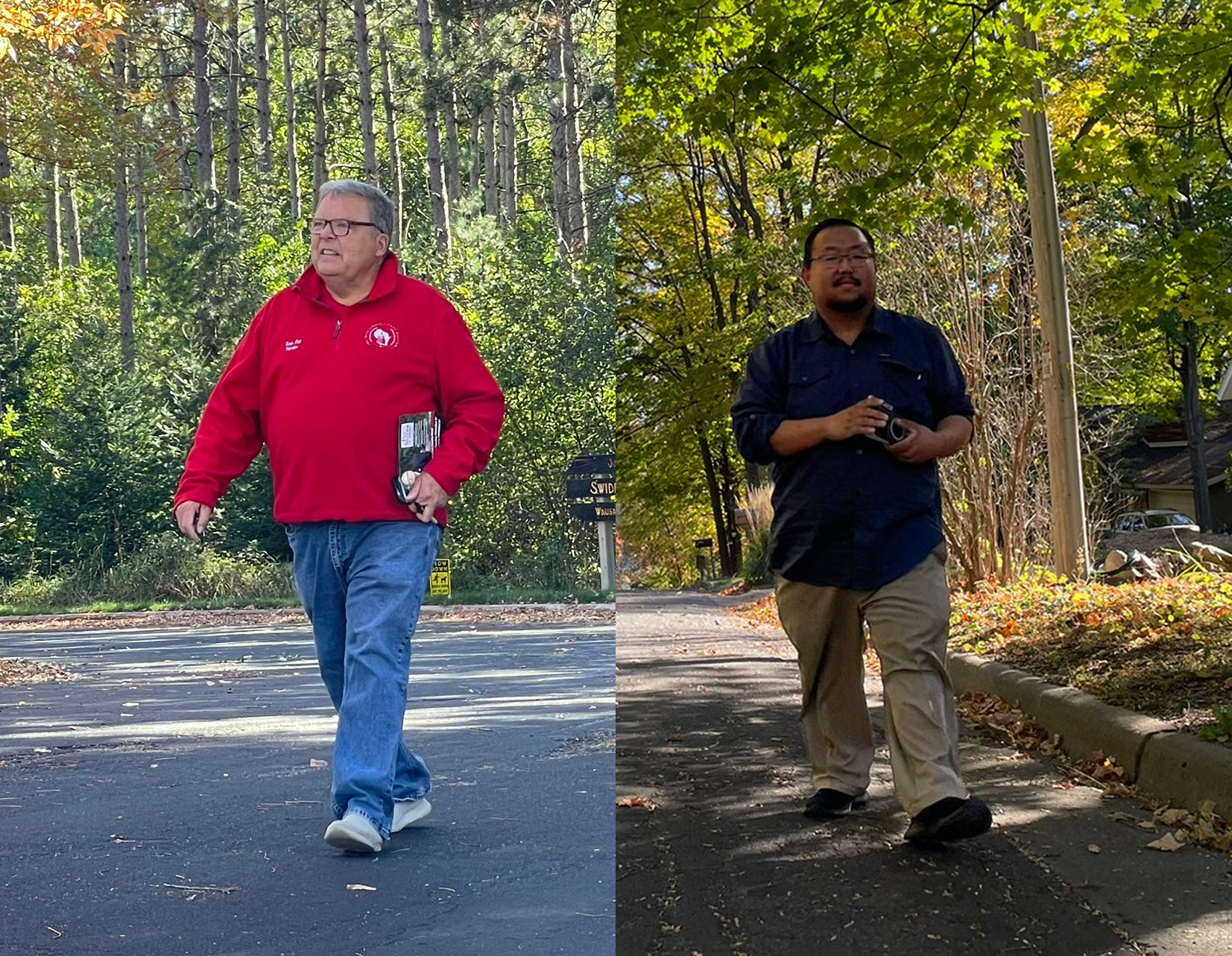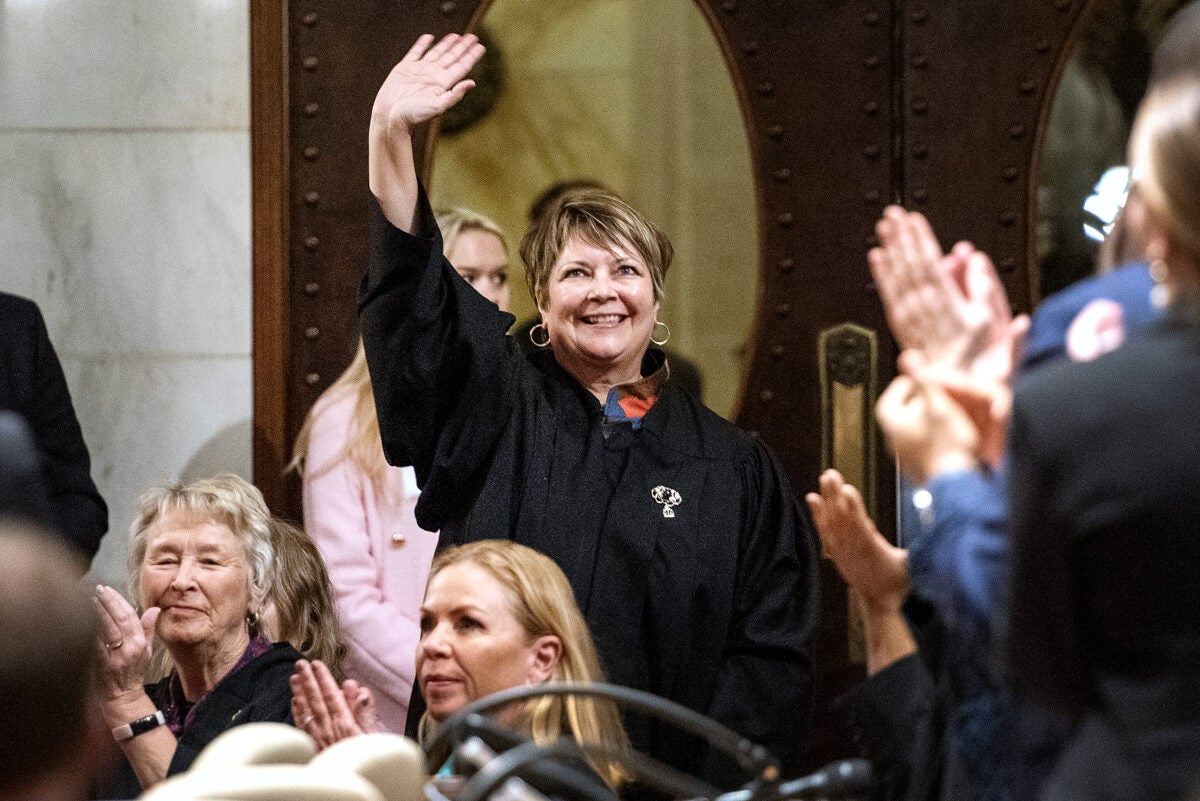When John Pearson rides the Stevens Point Skatepark near the shores of the Wisconsin River, he feels a sense of pride about the community’s embrace of skateboarding.
Before the city opened the park, Pearson remembers police officers routinely stopping and ticketing him for skateboarding. On the campus of the University of Wisconsin-Stevens Point, he recalls one officer saying, “Don’t you have anywhere better to be?”
Pearson and a city committee successfully rallied Stevens Point leaders to build a skatepark in 2010 for about $365,000, establishing a public place where skateboarding could legally happen. Now, Pearson and others are renewing a push for easing broader limits on the sport.
News with a little more humanity
WPR’s “Wisconsin Today” newsletter keeps you connected to the state you love without feeling overwhelmed. No paywall. No agenda. No corporate filter.
Skateboarding is illegal on Wisconsin roadways under a state law that prohibits riding “play vehicles” on publicly owned streets. Skateboards are considered play vehicles similar to sleds, unicycles and toy vehicles.
About a decade ago, as skateparks in Stevens Point and elsewhere gained support, state lawmakers considered removing skateboards from the list of play vehicles in statutes like they had with in-line skates in 1994. But the effort failed to pass.
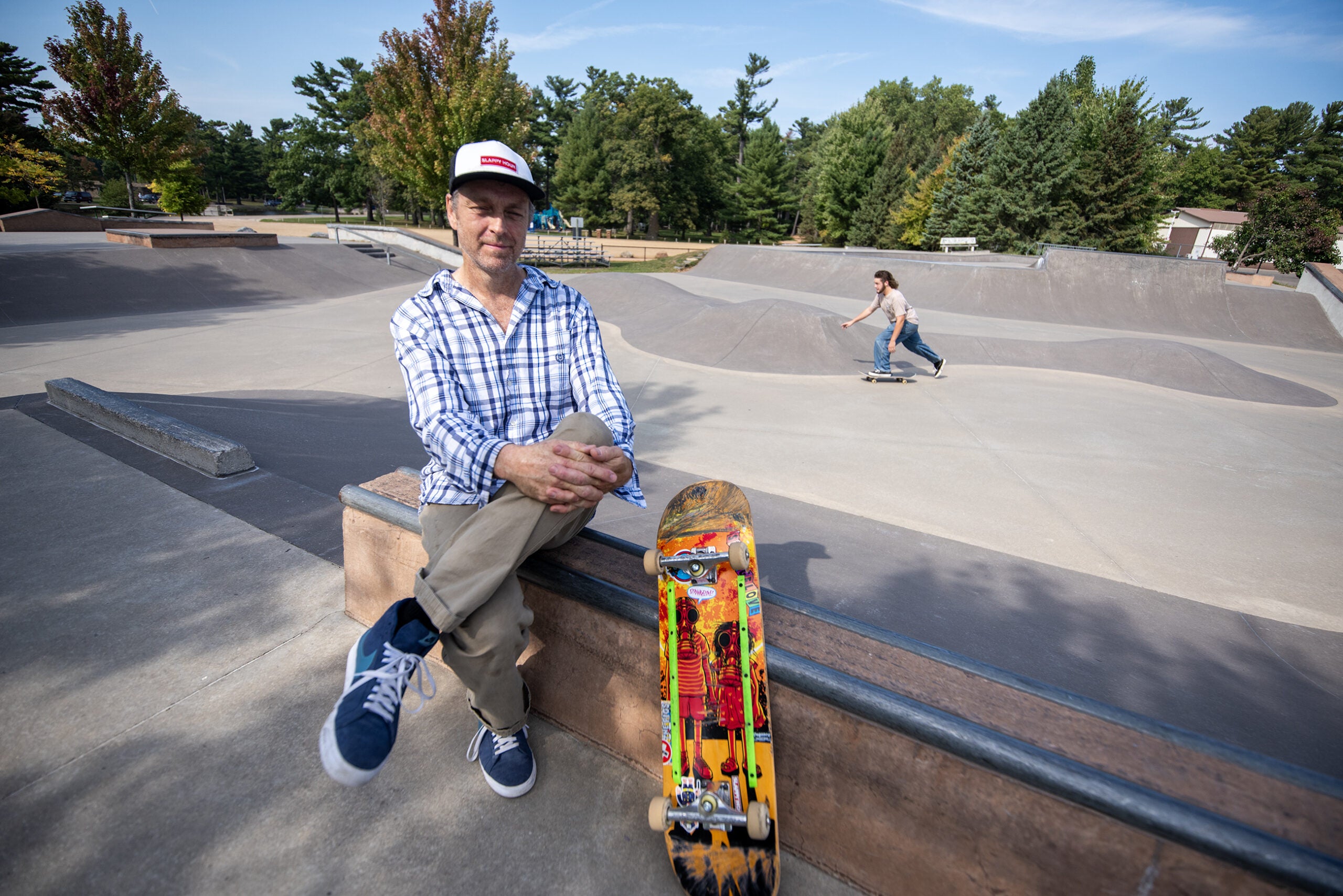
Two Democrats have reintroduced legislation that would remove skateboarding from the state’s list of play vehicles. Local authorities would decide whether to allow or prohibit skateboarding on their streets.
“I thought that this was a simple fix,” said state Rep. Alex Joers, of Middleton, one of the legislation’s authors. “That’s what my constituents were asking for. It seemed very common sense.”
Joers said he is pleasantly surprised Democrats and Republicans, who hold majorities in both chambers of the Legislature, are backing the proposal. The previous legislative effort gained few cosponsors and never received a hearing.
While easing restrictions failed a decade ago, Pearson views skateboarders as a persistent crop. Perhaps the same motivation to attempt a new trick hundreds of times can also drive a grassroots attempt to change state law?
“If you cannot handle failure, you cannot really spend any time skateboarding,” he said. “You have to have the belief that you can do this thing; otherwise, you’re never going to get anywhere.”
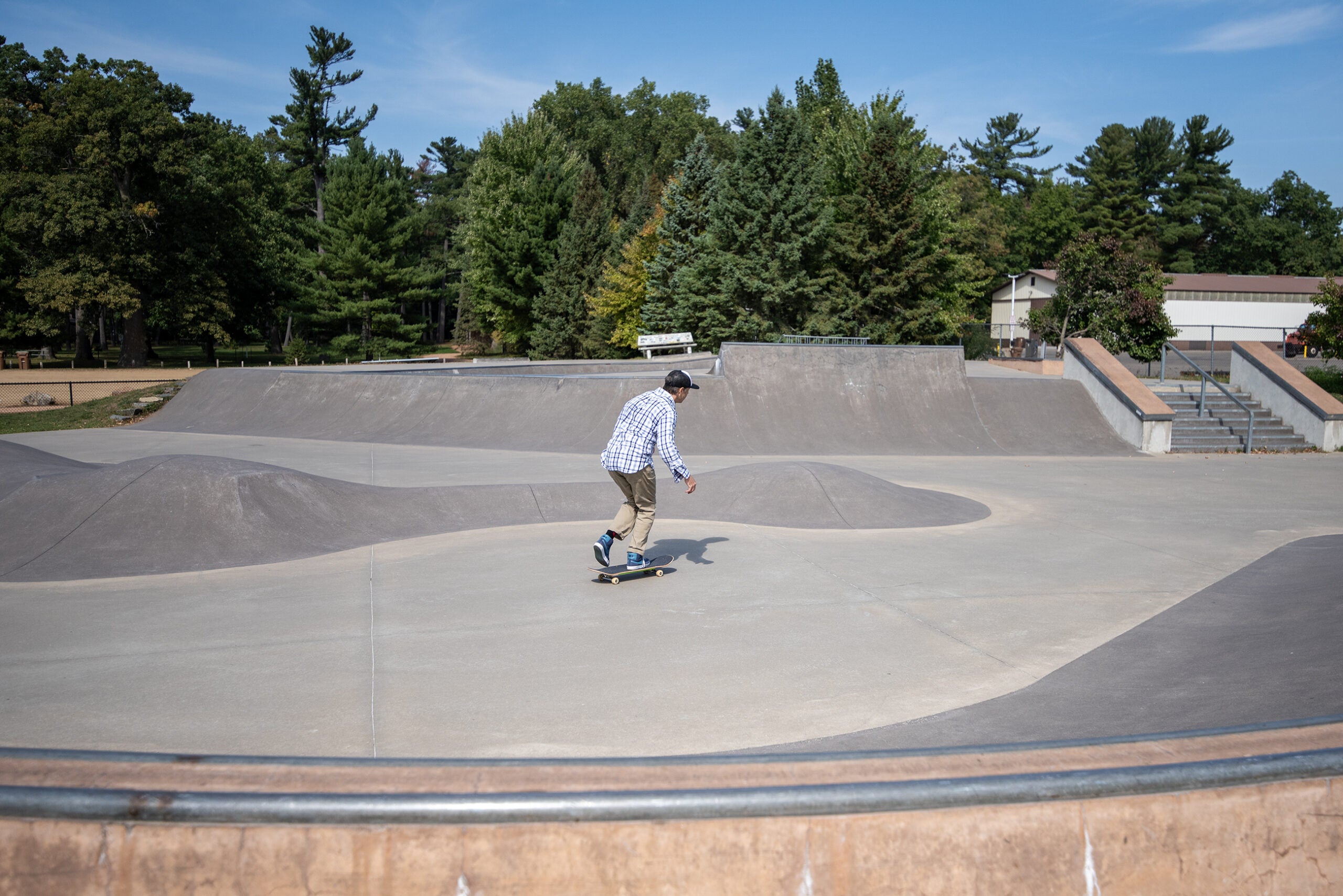
‘Getting in trouble for skating’
Paul Yih grew up in Williams Bay and remembers skateboarding with friends on a set of stairs at an elementary school or a nearby bank. Police officers issued them warnings to stop. If they remained, their skateboards were confiscated.
“It felt like you’re getting harassed for something that seemed pretty trivial at the time,” said Yih, a skateboarder for more than three decades. “Everybody always had the sticker, ‘Skateboarding is not a crime.’ But it certainly felt that way.”
When Yih later moved to the West Coast, he found skateboarding was celebrated rather than punished.
Pearson said he was fined three times for skateboarding and arrested in Stevens Point as a 16-year-old for skating in a municipal swimming pool. Many top skateboarders develop a criminal record, he said.
In Osceola, Marsha Hovey is leading an effort to establish a legal place for skateboarding by building a skatepark similar to the one in Stevens Point. In rural Wisconsin communities like Osceola, Hovey said a popular saying applies: “When your city doesn’t have a skatepark, your city is a skatepark.”
“The lack of a skatepark really leads to this conflict,” Hovey said. “You’re getting in trouble for skating in some area that you’re not supposed to when the solution for a lot of people is a free public skatepark, which (is) really lacking in Wisconsin.”
Hovey and Madison-area skateboarder Scott May recently appeared on Wisconsin Public Radio’s “The Morning Show” to discuss limits on the sport in Wisconsin. May said if communities want kids to stop behaving like outlaws, they should stop treating kids like outlaws.
“We’re living in a time where skateboarding is an Olympic sport,” he said. “We’re already in your state. We’re already residents. We’ve been here for years, and we’re obviously not going anywhere. These prohibitive laws have obviously not worked. So, there has to be a better way to deal with this.”
‘Takes a dedicated community’
Hovey moved to Osceola about three years ago and soon connected with others seeking a skatepark. While a previous push failed to gain traction in the community, the skatepark’s supporters have so far raised more than $80,000 of their $200,000 goal.
“It really takes a dedicated community to fundraise and to keep going and keep going and keep asking, because the state has not yet really recognized skateparks as they do field sports — investing in track and field, investing in basketball courts,” Hovey said.
Some communities fund skateparks with private donations while others receive government aid. Several western and mountain states “built skateparks into their lexicon for recreation,” Hovey said. Minnesota funds a grant program for skateparks.
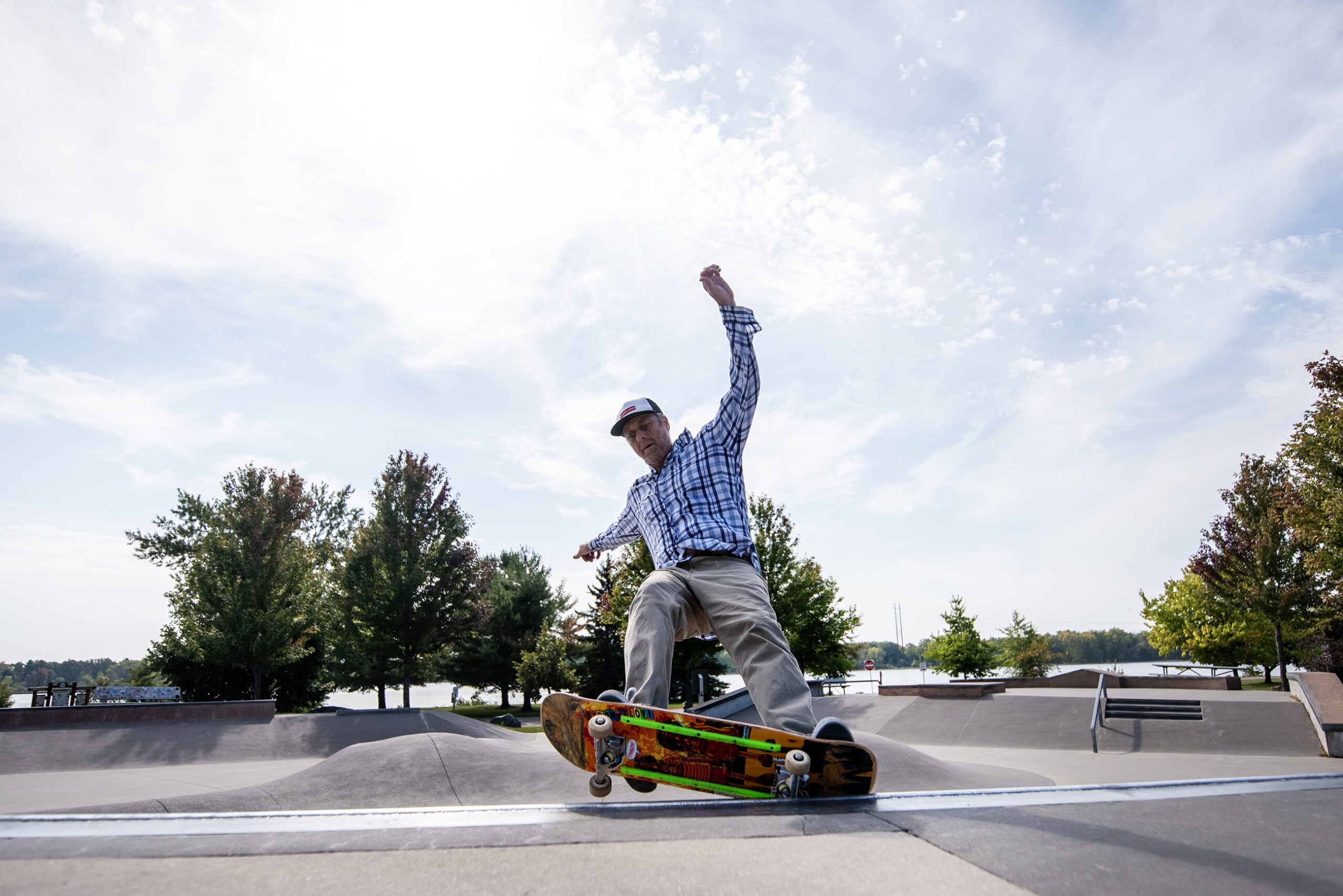
A few years ago, Yih said he urged the Williams Bay Village Board at a public meeting to add a skatepark in the community. But without much discussion, the board moved on to other business, he said.
“I was speaking on behalf of myself growing up and kids that live there now,” Yih said. “I tried to garner some support, but I was hoping to have somebody take the reins or just light a fire under somebody. But it wasn’t the right time.”
Pearson is happy with the skatepark in Stevens Point. As a member of a city committee, he worked on the park’s design and ensured it could handle a cold climate. He hopes to raise money to expand the park and encourage funding kids’ own ideas for additions.
“Then they will be like, ‘This is our park. We’re doing this now,’” Pearson said. “It’s my sincere hope that it catches on.”
Wisconsin Public Radio, © Copyright 2025, Board of Regents of the University of Wisconsin System and Wisconsin Educational Communications Board.

